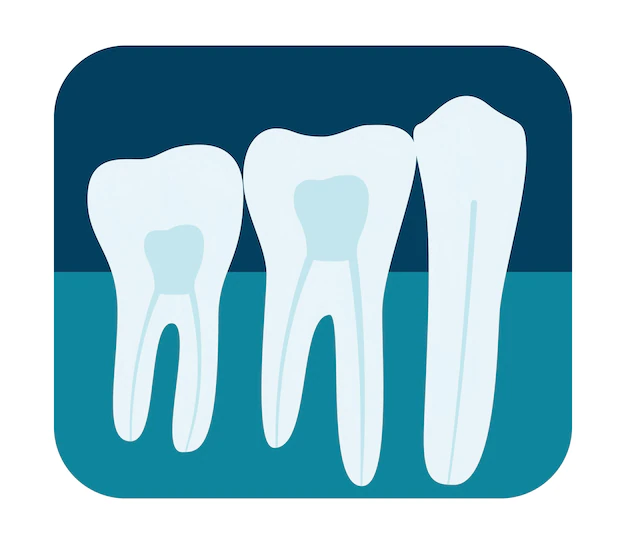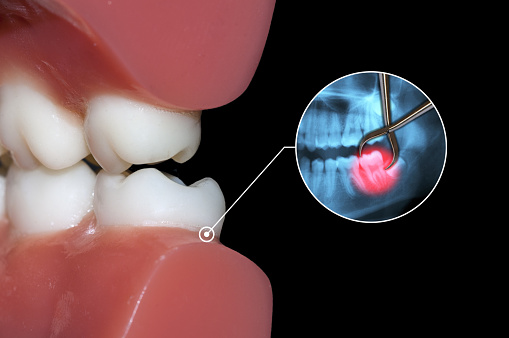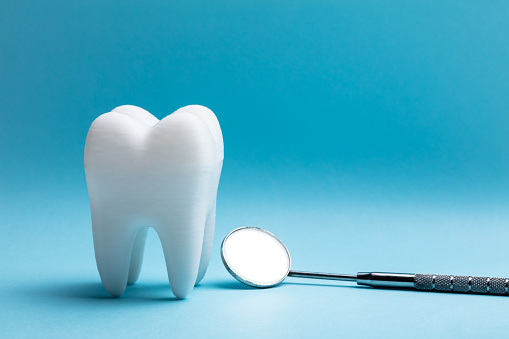When most people think of wisdom teeth, they think of them as nothing more than a nuisance. However, wisdom teeth can actually be quite useful. They can help you chew food better and can fill in gaps in your teeth. That being said, they can also cause a lot of pain when they first come in. Here are a few things to look out for if you think your wisdom teeth might be making an appearance.

Swelling And Tenderness In The Area
If you suddenly start feeling pain or swelling in your gums, it may be a sign that your wisdom teeth are coming in. You will likely feel tenderness and discomfort on both sides of the mouth near the back molars, as this is where the wisdom teeth typically come through first.
Jaw Pain
When your wisdom teeth begin to emerge, they can press against other teeth, causing intense jaw pain. This may be more than just an occasional ache; it could become a persistent throbbing sensation that makes eating difficult.
Difficulty Opening Your Mouth
As your wisdom teeth push against your existing teeth, you may find it difficult to open your mouth wide enough to chew comfortably. This is especially true if the wisdom teeth have grown crooked or become impacted in your gums.
Headaches
If you experience frequent headaches, it may be related to your wisdom teeth coming in. This can happen when the pressure of emerging wisdom teeth causes tension on nerves and muscles throughout the head, neck, and face.

Bleeding Gums
Any time there is a change happening in your mouth, such as with new teeth growing in, it can lead to gum inflammation which may cause bleeding.
If you are experiencing any of these signs or symptoms and suspect that your wisdom teeth may be coming in, it’s important to see a dentist for an evaluation. Your dentist can assess how and when your wisdom teeth are coming in and determine the best course of action to take. Depending on the teeth’ impact, you may need surgical intervention to remove them. If that is not necessary, you will still need regular check-ups to ensure your teeth remain healthy as they grow.
By being aware of how to tell if your wisdom teeth are coming in, you’ll be able to stay ahead of any potential dental issues before they become serious problems. Remember: if something seems off with your mouth, always consult a professional!
It’s better to be safe than sorry when it comes to your smile.

How Long Does The Average Eruption Process Take?
The average eruption process of wisdom teeth generally takes around two to three years. There are, however, cases where it may take longer or shorter for the teeth to come in. If you are experiencing any pain or discomfort near your back molars, it is possible that they are erupting and you should consult with your dentist. The dentist will be able to determine if your wisdom teeth are coming in and how long the process is likely to take. In most cases, there is little need for concern as the eruption of wisdom teeth is a natural occurrence. However, if complications arise, your dentist can provide treatment.
What Are Some Of The Potential Complications That Can Arise From Wisdom Teeth Eruption?
Wisdom teeth, also known as third molars, can cause problems for some people. There are a few things you can look for to tell if they are coming in. If the tooth is crooked or if it is impacted, it can be difficult to remove and can cause pain and other issues. Other potential complications include gum disease, tooth decay, and cysts. If you are experiencing any of these problems, see your dentist as soon as possible.
In addition to the physical symptoms, there are other indications that wisdom teeth may be erupting. If you’re in your late teens or early twenties, it’s a good time to start looking for signs of tooth growth. You should look for changes in how your teeth feel when eating food and how your jaw moves when opening wide.
Wisdom teeth can also cause crowding of the other teeth if they don’t have enough room to come through properly. Crowded teeth can lead to difficulty chewing, pain when brushing or flossing, and even gum disease if not addressed properly. If any of these issues arise, make sure you visit your dentist right away as they will be able to provide treatment options so you can enjoy a healthy smile.
Finally, you should watch out for any changes in how your mouth feels. You may experience pain or a sore jaw when chewing food or talking. If you’re feeling these symptoms, it’s best to see a dentist right away so they can take x-rays and determine if wisdom teeth are the cause of your discomfort.
Conclusion:
If you’re experiencing any of these symptoms, there’s a good chance that your wisdom teeth are coming in. It’s always a good idea to see a dentist so they can take a look and let you know for sure. In some cases, Wisdom teeth don’t need to be removed but in other cases, they do. Your dentist will be able to let you know what the best course of action is for you based on the severity of the situation. Thanks for reading!
You May Also Like The Following: